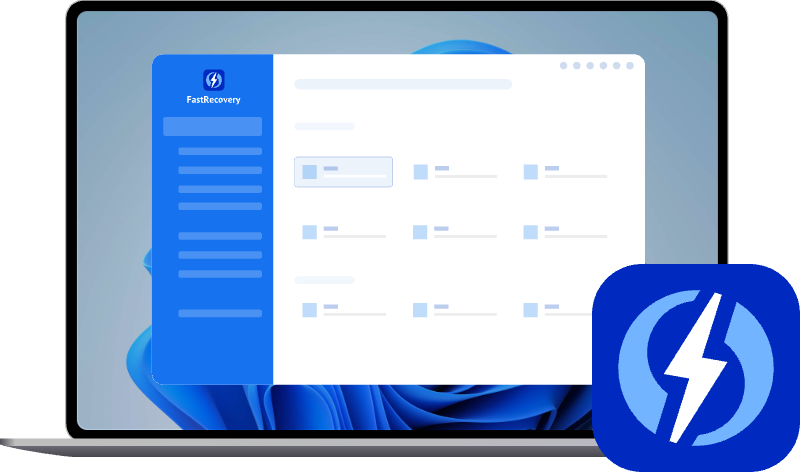How to Recover Deleted or UnSaved Word Files (5 Ways)
This tutorial offers you 5 feasible ways and shows you how to recover deleted word files step by step. Scroll down to explore more
Can I recover deleted word files?
Microsoft Word is one of the most popular documents you use and rely on for personal or business tasks. While using it, you may forget to save Word documents, delete them by accident, or due to virus infections, system crashes, etc. Here are some real cases:
“I deleted my word files accidentally, and I cannot find them in my recycle bin. Luckily, I have made a backup. So could you help me recover it with my backup? Thanks.”
“Help! I’ve emptied my recycle bin before, and now I want to use it. Is there any way to recover Word files? And there’s no accessible backup for me to use. Thanks in advance.”
How to recover deleted word files
In this part, we'll show you how to recover deleted or lost Word files in 5 useful methods.
#1. Check the Recycle Bin
If you deleted Word files on your computer, the first place to check is the Recycle Bin folder. Unless you empty the Recycle Bin or use Shift + Delete options, it will keep deleted Word files for 30 days by default.
Step1. Double-click the Recycle Bin folder on the desktop to open it.
Step 2. Then, locate and right-click deleted Word files and select Restore. You can check if it's recovered in its original location.
#2. Recover deleted Word files using software 🔥
AOMEI FastRecovery is a reliable Windows data recovery software to find and recover deleted or lost files, such as Word, PPT, Excel, PPT, PDF, TXT, etc., in Windows 11/10/8/7 and Windows Server.
- Combined Quick Scan and Deep Scan detect your data without missing anything.
- Cover 1000+ types of data, from documents to photos, videos, audios, Emails, webpages, and compressed files.
- Recover deleted or lost files from SSDs/HDDs, external disks, USB drives, memory cards, etc.
- Search or filter data through data type, file name, extension, etc, especially useful for recovering specific files.
- Preview and recover files while scanning.
- Support NTFS, FAT32, ExFAT, ReFS file systems.
Are you bothered by deletion, disk formatting, or virus attacks? Don't hesitate to download it and enjoy the high recovery rate now!
Step 1. Install and run AOMEI FastRecovery on the computer. Hover the mouse over the drive containing deleted Word files, and click Scan to scan.
Step 2. Quick Scan and Deep Scan can search all recoverable data including deleted Word files on the selected partition/disk.
Step 3. Check your scanning results and click "Recover x files". Or filter the desired data you want. Please select a new location to save your recovered Word files to prevent data overwriting.
#3. Recover deleted word files using Windows File Recovery
Windows File Recovery is a command-line program released by Microsoft that is only available for Windows 10 and later versions.
- The syntax: winfr source-drive: destination-drive: [/mode] [/switch]. Please be sure the source drive and destination drive are different.
- Support 4 recovery modes: Regular, Extensive, Segment, or Signature mode.
- Support storage devices (HDDs/SSDs, external disks, USB drives, SD cards) and NTFS, FAT, ex-FAT, and REFS file systems.
Step 1. Click the “Get” button to download Windows File Recovery from the Microsoft Store. Then, install it and run it as administrator.
Step 2. In File Explorer, right-click the disk and select Properties. Then, you will see the file system in the Properties window.
Step 3. Select a suitable mode and desired switches. Select the Regular mode if you deleted your files recently. Otherwise, the Extensive mode (a thorough recovery option suitable for all file systems) is a better option.
Step 4. To recover deleted Word files from C: drive to E: drive this morning, type Winfr C: E: /regular /n *.docx and press Enter.
Step 5. Press “y” to continue. Please wait patiently and click your destination folder to check the recovered word files. If you want to stop the recovery process, press the “Ctrl + C” button.
#4: Recover deleted word files from Google Drive
Recovering deleted Word files is heavily dependent on accessible backups, such as cloud storage like Google Drive, built-in backup software, etc. Here we'll show you how to restore from Trash in your Google Drive. Note the deleted files remain for 30 days.
Step 1. Open your Google Drive, go to “Drive” > “Trash”.
Step 2. Right-click on the file you need by browsing all the files or entering the targeted file name.
Step 3. Click the “Restore” button to get them back.
#5: Search AutoRecover for lost Word files
Microsoft offers users a feature named AutoRecover to recover unsaved Word documents if you forget to save it before closing or due to app crashes. Be sure you turn it on before data loss.
From File Explore:
Step 1. Go to File > Options > Save to check the AutoRecover file location.
Step 2. Copy and paste the AutoRecover file location in File Explore to access it.
- C:\Users\Owner\AppData\Roaming\Microsoft\Word
- C:\Users\Owner\AppData\Local\Microsoft\Office\UnsavedFiles
Step 3. Find the lost Word files and open it. Then, click File > Save as to recover it.
From Microsoft Word 2010 - 2019:
Step 1. Open Microsoft Word. Click the File tab in the upper left.
Step 2. Go to Manage Document and select Recover Unsaved Documents.
Step 3. Check if your lost Word files are there. If yes, open it and click the Save as button.
Wrapping up
This tutorial shares 5 useful methods to recover word files. For example, if you use Google Drive, you can recover the Word files you need. Otherwise, you may try Windows File Recovery to restore them.
Given that there’s no graphical user interface (GUI) for you, you have to enter specified command lines to recover deleted word files, which is indeed hard for non-experts. All in all, AOMEI FastRecovery could be the most user-friendly software. Why not have a try?

